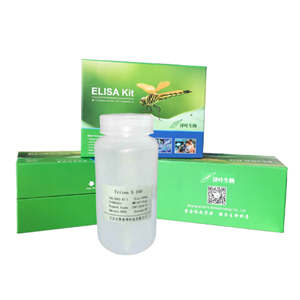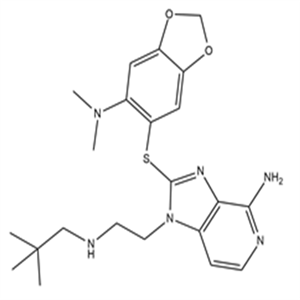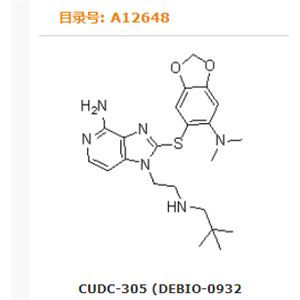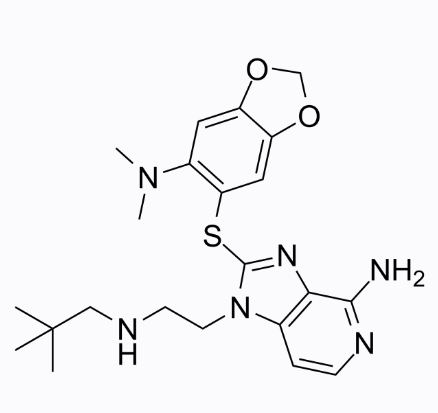1061318-81-7
Debio 0932
1061318-81-7
1061318-81-7
询价
5kg
起订
10kg
起订
25kg
起订
广东 更新日期:2025-12-08
产品详情:
公司简介
广州优南科技有限公司,是一家集研发、生产、销售于一体的高新技术企业,为全球生物医药企业、高校及科研院提供生命科学研究的产品与服务。
优南拥有自主研发的品牌ULS,为客户提供超过50000的工具化合物(小分子抑制剂/激动剂、标准品/对照品、荧光标记染料及探针)、医药原料及中间体、新型材料。
| 成立日期 | (8年) |
| 注册资本 | 100万 |
| 员工人数 | 10-50人 |
| 年营业额 | ¥ 100万以内 |
| 经营模式 | 贸易,工厂,试剂,定制,服务 |
| 主营行业 | 材料化学,生物化工 |
Debio 0932相关厂家报价
-

- HSP90抑制剂(Debio 0932)
- 上海泽叶生物科技有限公司 VIP
- 2026-01-06
- 询价
-

- 化合物 Debio 0932|T15088|TargetMol
- TargetMol中国(陶术生物) VIP
- 2025-11-17
- ¥699
-

- 1061318-81-7bio 0932
- 上海嘉定区澄浏公路52号
- 2025-11-06
- 询价
-

- CUDC-305 (DEBIO-0932)
- 南京百鑫德诺生物科技有限公司
- 2024-09-26
- 询价


